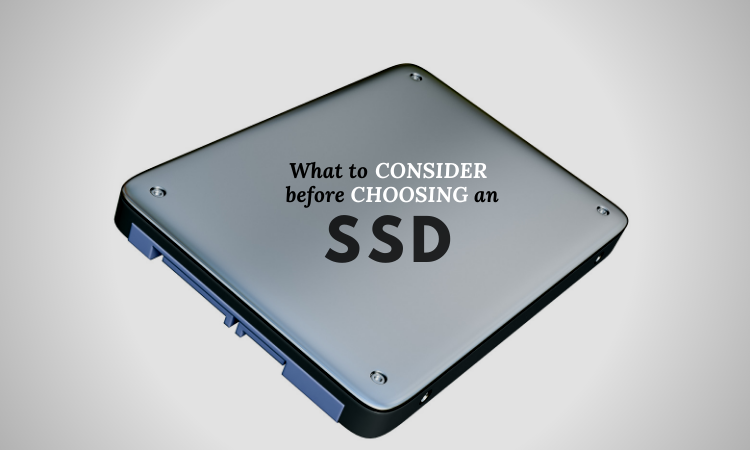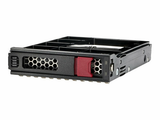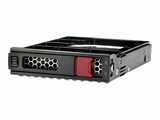What to consider before choosing an SSD
A data storage device is a must-have item especially for those who utilize technology in their business and interest. In various industries, data is highly considered as a vital tool in sustaining and developing operations.
When it comes to performance, a solid-state device or SSD remains the king in the market.
Compared to a traditional hard drive disk, an SSD is considered to be faster and more reliable in terms of data storage and management as it uses NAND flash memory instead of mechanical platters.
If you are running a business, it is ideal to choose an enterprise SSD over a consumer/client SSD. Enterprise SSDs are designed to have increased reliability which means it has a higher capacity and sustains high performance for a longer time.
But before making your purchase, it is imperative to understand which one suits best for your needs, your computer, and the nature of your work. SSDs come with different specifications designed for specific occasions. Other known brands such as HPE SSDs even add special features to enhance performance and protection.
There is no doubt that most enterprise SSDs in the market cost more than HDDs or consumer SSDs considering their advantage in terms of efficiency. Get the most out of your purchase by looking into the following requirements:
1. Capacity
Your needed capacity is an important factor to consider when buying an SSD. It depends on the nature of your work and the types of data you intend to store.
SSDs below 500 GB are available in the market and are meant for small and mid-size file storage. But if you wish to enjoy a faster performance and house massive media files like operating systems and game libraries, it is best to choose SSDs with 1 TB capacity or higher.
The same applies if you have rigorous work that may include a large block database, real-time analytics, and business processes.
2. Interface
SATA: A Serial AT Attachment (SATA) links data storage devices like SSDs through host bust adapters. It is suited for direct connect use cases.
SAS: A Serial-Attached SCSI (SAS) transfers data from one storage device to another, point-to-point between two hardware devices. SAS SSDs are suited for workloads that demand high input/output (I/O) and generally high performance. It has improved performance and bandwidth compared to SATA.
NVMe: A Non-volatile Memory Express (NVMe) SSD is the latest storage protocol that ensures smooth data transfer by connecting the source to the memory subsystem. It provides high-quality performance and endurance as well as superb system latency.
3. Workload Compatibility
SSDs are also classified according to the weight of the workload in which they are utilized.
Read Intensive: The Read Intensive SSD is intended for workloads that involve a high Read performance like active archiving, analytics, cloud computing, low-end database, email, read caching, and social media management.
Write Intensive: Write Intensive SSDs have high write performance and endurance. It is typically used for applications that require a balance of write IOPS performance. It has an average Endurance of >=10 DWPD. Some of the applications that need to write intensive SSDs are virtualization, networking, financial computing, and business processing.
Mixed Use: It is ideal for workloads that need a balance of Read and Write performance with a product Endurance averaging >1 to <10 DPWD. You may need a Mixed Use SSD if you are working on medium density virtualization, IT infrastructure, and general business applications.
4. Endurance
The amount of data that an SSD can write for a declared period of time measures its endurance. To determine this vital factor, you should look at the drive writes per day (DWPD) in the specification. DWPD indicates the number of times that you can overwrite the SSD’s size on each day of its lifespan.
Value Endurance: <1 DWPD
Light Endurance (LE): 3 DWPD
Mainstream Endurance (ME): 10 DWPD
High Endurance: 25 DWPD
5. Server Compatibility
Brands such as HPE ensure that their SSDs have software-defined infrastructure. You can expect that they employ industry-standard servers. Hence, when buying an SSD you have to ensure that it matches your server.
Here’s a quick look at server types that HPE offer specifically designed for enterprise tasks. Most servers are between Gen9 and Gen10 but earlier versions are also available from Gen 2 to Gen 8.
HPE Server Type:
Proliant Servers 100 – 300 Series: For active archiving, data analytics, medium-density virtualization, messaging, and general business applications.
Proliant Servers 500 Series, Synergy, and Apollo Systems: For storage and database, business intelligence, cloud computing, data warehousing, mission-critical applications, networking, and real-time analytics.
6. Carrier
SSDs are enclosed in a carrier devised to match the specific server. HPE commonly has the standard and smart caddy. HPE MSA or modular storage array SSDs typically have the standard carrier/tray/caddy.
Gen2 to Gen7 servers SSDs must have the HPE standard caddy for SSDs with lower than 6 Gb/sec speed otherwise it needs a smart Caddy. If they buy a SAS 12 Gb/sec SSD with the wrong caddy they can only make use of 6 Gb/sec.
Gen 8 to Gen 10 servers can take any SAS/SATA (3G/6G/12G). What they need is the HPE Smart carrier/tray/caddy (SC). An important feature of Gen 9 and Gen 10 servers is the digitally signed firmware. It enhances security against malicious attacks by prohibiting unauthorized access to your data.
In a Nutshell
When choosing the right enterprise SSD, a good grasp of the key features and components of the device is a must. You wouldn’t want to spend money and not get it's worth. Analyze its compatibility with your workload, server, and data type.
Need more assistance in buying an enterprise SSD? Storage Parts Direct is here to make your selection and purchasing experience easier and worth your time and effort.
Recent Posts
-
Solid Confidence in Every Byte: Powering ProLiant Gen10 and Gen10 Plus Servers with the HPE 960GB LFF Value SAS SSD
HPE 960GB 3.5-inch LFF Digitally Signed Firmware SAS-12Gbps Mixed Use Value SAS Multi Vendor SSD for …Dec 13th 2025 -
Where Reliability Meets Everyday Speed: Empowering ProLiant Gen9 and Gen10 Servers with the HPE 960GB LFF SATA Mixed Use SSD
HPE 960GB 3.5-inch LFF Digitally Signed Firmware SATA-6Gbps Mixed Use SSD for ProLiant Gen9 and Gen1 …Dec 12th 2025 -
The Titanium Heart of Your Datacenter: Unleashing Power with the HPE 960GB LFF Digitally Signed Firmware SAS Enterprise SSD
Powering Enterprise Reliability with the HPE 960GB 3.5-Inch LFF Digitally Signed Firmware TLC SAS-12 …Dec 10th 2025




